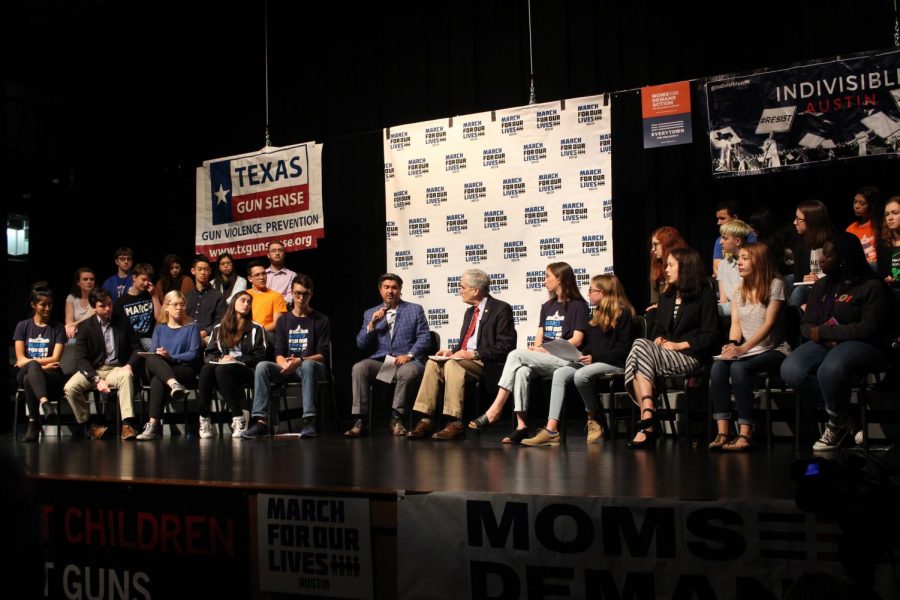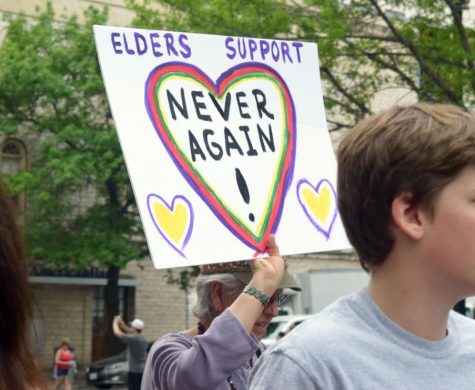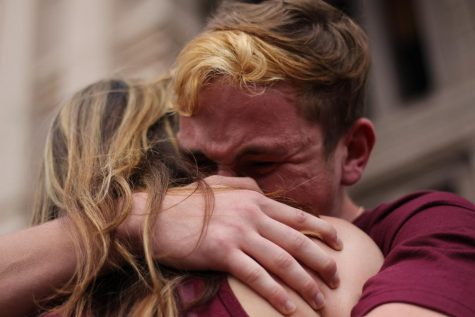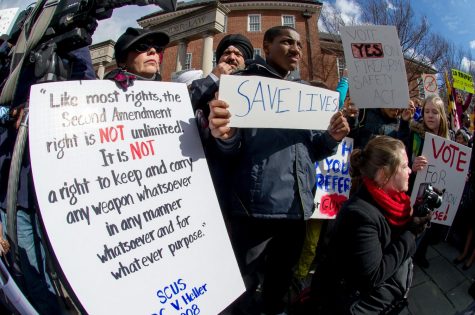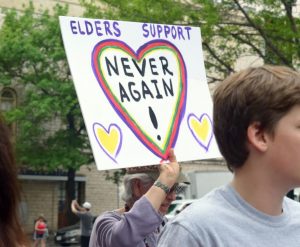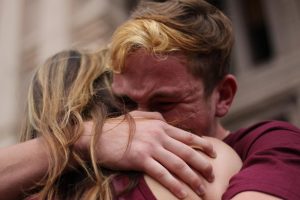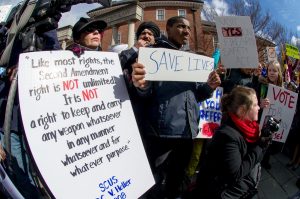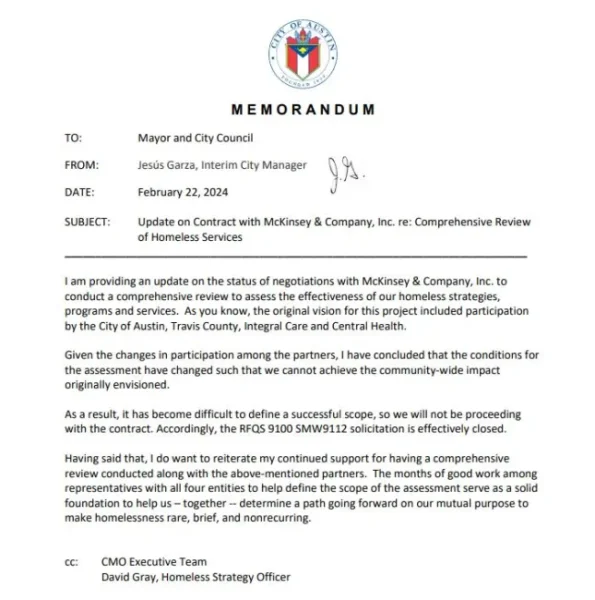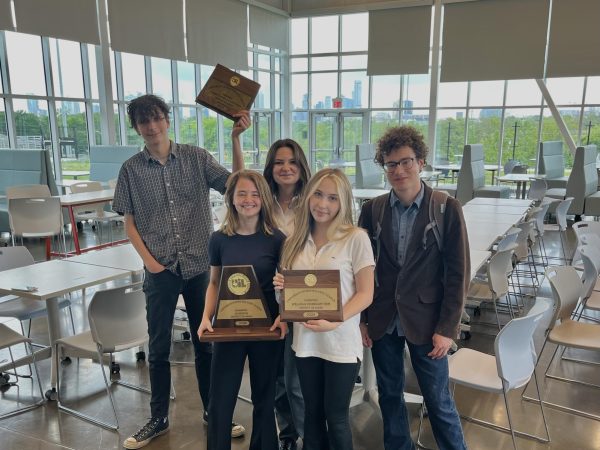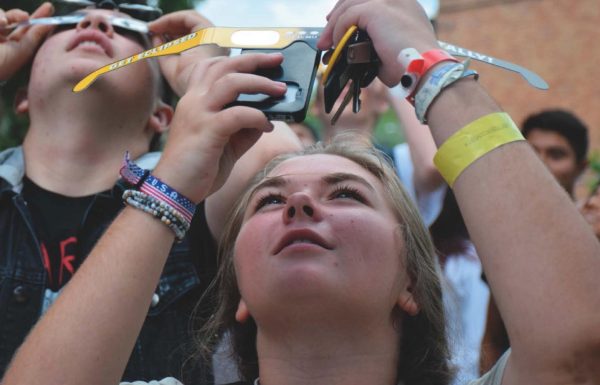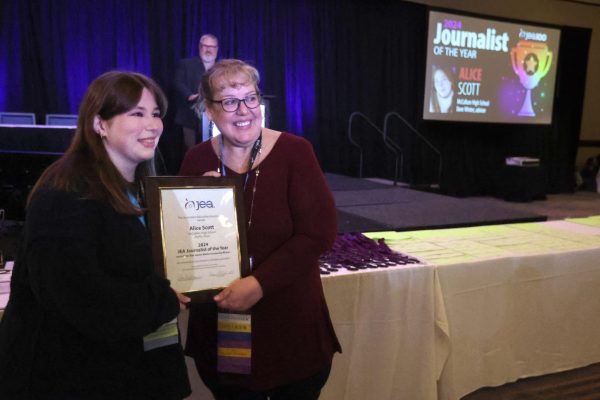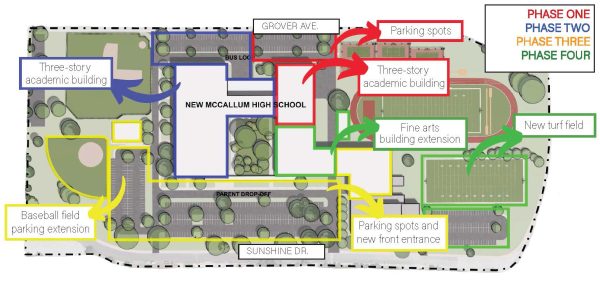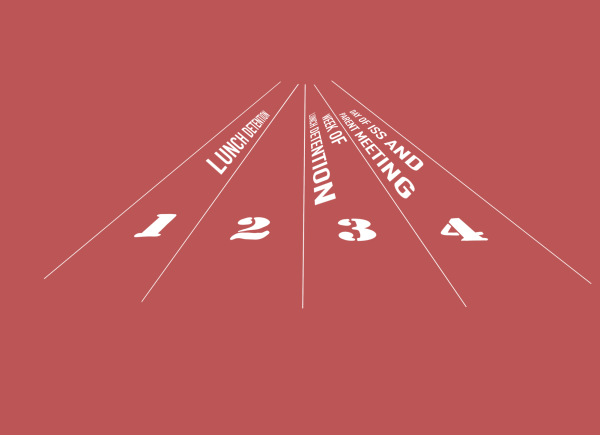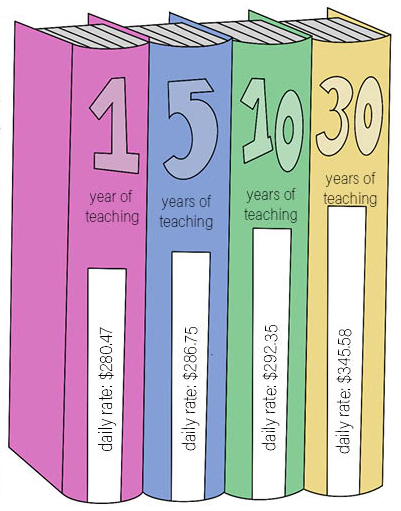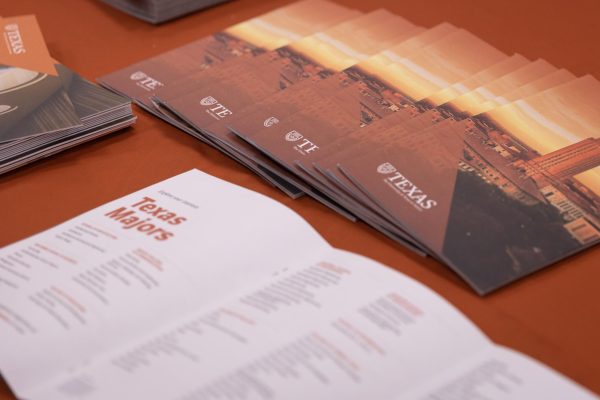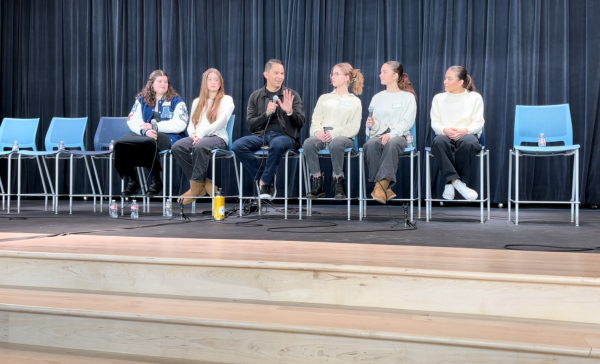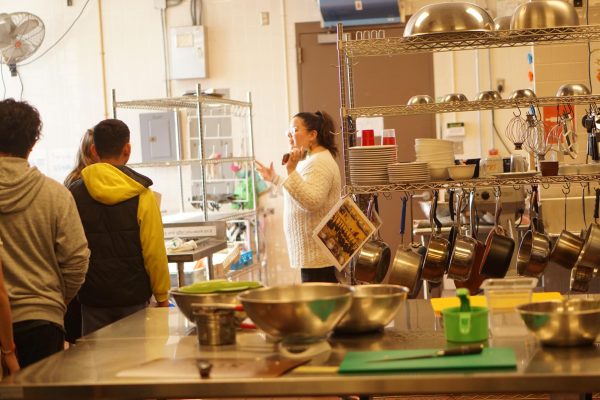Meeting picks up where march left off
At Travis High town hall, students, legislators push government to do more to prevent school shootings
The Town Hall for Our Lives attracted a crowd of hundreds and was one of more than 200 such events staged all across the country. Photo by Madison Olsen.
April 9, 2018
Hundreds of people were in attendance at Travis High School Sunday afternoon as 26 students joined U.S. Rep. Lloyd Doggett and TX Rep. Eddie Rodriguez, both Democrats from Austin, onstage to discuss the effects of gun violence and how to enact reform.
This town hall, one of dozens orchestrated in the “Town Hall for Our Lives” nationwide event, took place after last month’s “The March for Our Lives” march, where hundreds of thousands took to the streets in protests all over the word to protest insufficient gun control legislature. According to the organizers, this event was one of an estimated 215 across the country.
Before Doggett and Rodriguez started participating in a Q&A about gun control in general, the students, representing a range of ages from middle school through college, led the town hall by describing a childhood spent in the shadow of school shootings, notably those in Newtown, Connecticut and most recently Parkland.
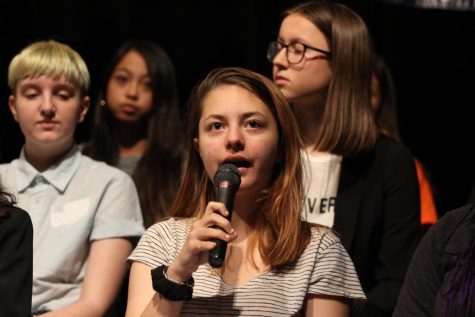
Among the students on the stage were a few from McCallum: freshman Ari Miller-Fortman, sophomore Kelsey Tasch, junior Liz Epperson and senior Nico Jones.
Miller-Fortman recounted the time when the school underwent a fire drill the week after the shooting in Parkland ended with 17 dead at Marjory Stoneman Douglas High School. The shooter had pulled a fire alarm to draw the students from their classrooms before he began his attack— a fact that was not lost on McCallum students.
We shouldn’t be sitting here not getting up during a fire drill — which is a practice for our safety — because we’re scared of getting shot at our own school.
— Freshman Ari Miller-Fortman
“Nobody got up once the fire alarm went off,” she said. “Nobody wanted to get up because we were all scared — what if this isn’t a drill? We shouldn’t be sitting here not getting up during a fire drill — which is a practice for our safety — because we’re scared of getting shot at our own school.”
Tasch spoke to how jarring but yet how familiar every instance of a school shooting felt to her and her friends and family.
“I remember reading the headline out loud to my friend with apathy,” she said, referring to the Parkland shooting. “In that moment it was just a look, another one, and we continued on with our day. I had become numb to it. I think many of us have. I have cried over Newtown, cried over Orlando, Las Vegas, Sutherland Springs, trying to wrap my head around the increasing number of atrocities left me spinning, and I was desensitized.”
Tasch said her perspective changed when she got home from school later that day.
“I was almost immediately met by my big brother Carsten, who, to give you some context, I’ve always thought of as inexpressive, resilient, and in better control of his emotions than I am. He asked me if I had heard about Parkland, and I said yes. He may not like me saying this, but his eyes were red, like he had been crying, and he told me how upsetting and how messed up it was, how messed up everything was. In that moment, with our roles reversed, something shifted in me. It made me so angry to see him that shaken. It’s not something he should have to deal with, nor my classmates or my parents, teachers, nor I.”
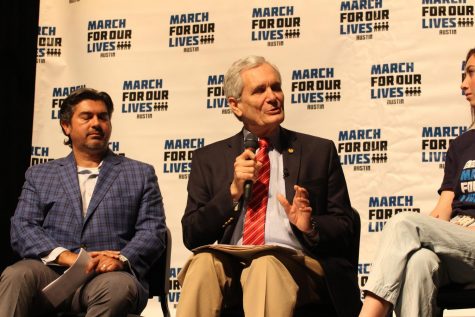
After the students had finished sharing their stories, the representatives began the Q&A, where they gave their thoughts on gun control legislation and the hurdles they must go through in order to pass what Doggett called “common sense legislation” into law.
I watched them carry a body out of the tower, and I can tell you — you can see from my age — you never get over it.
— Karen Collins, 1966 UT Tower shooting eyewitness
“The reason we don’t have a ban on assault weapons or magazines or universal background checks, it’s the same answer for everything: there’s an NRA ownership over Congress,” Doggett said. “We have a logjam right now, where NRA now stands for ‘No Republican Action.’ ”
After the congressmen finished answering questions, the floor went to an open Q&A with the students and candidates running for local positions. Members of the audience went up to ask questions or offer support to the kids sitting on the stage. One woman recounted her own experience in a school shooting.
Karen Collins was earning her master’s degree at the University of Texas the same year Charles Whitman opened fire from the UT Tower, killing 14 people and wounding nearly three dozen on Aug. 1, 1966. “I watched my fellow students get shot; I watched them fall to that hot, blistering pavement,” Collins said. “I watched them die. I watched policemen die. I watched an armored car finally come and protect those that were laying on the pavement and pick them up and drive them away. I watched them carry a body out of the tower, and I can tell you — you can see from my age — you never get over it.”



